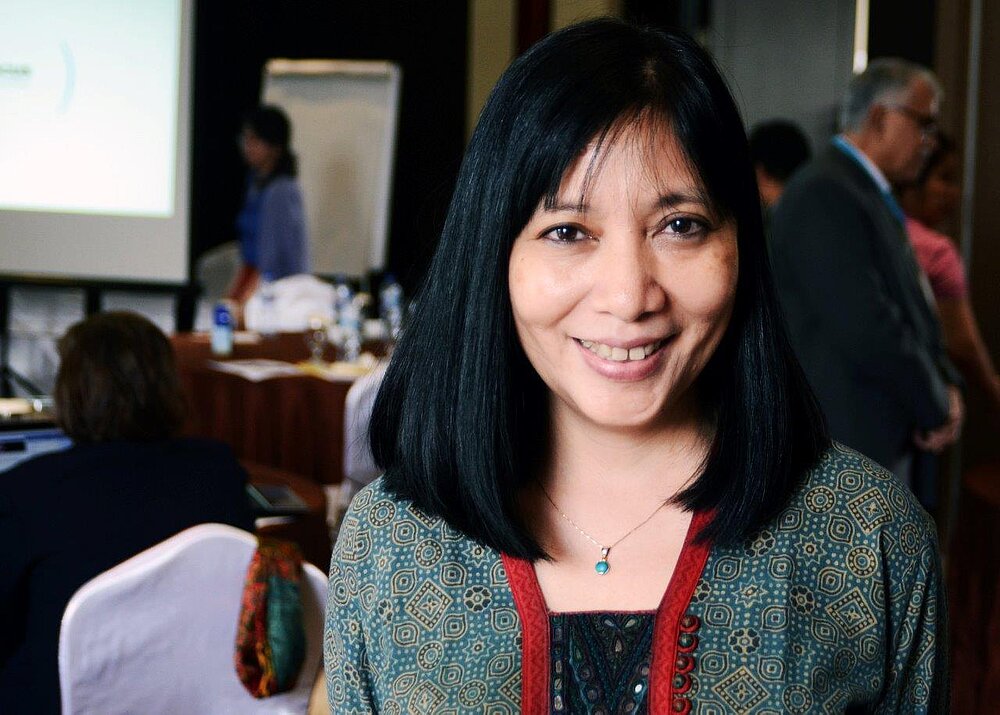Maria Khan, Secretary General of the Asia South Pacific Association for Basic and Adult Education (ASPBAE), a partner organisation of DVV International, talks about successes and challenges of the new global education agenda.
You were very engaged in developing and shaping the new education agenda within the Sustainable Development Goals (SDGs). Are you satisfied with the result?
Maria Khan: While by no means perfect, SDG 4 is stronger than the previous education goal within the Millennium Development Goals (MDGs), which almost solely focused on universal primary education. SDG 4 promotes a lifelong learning framework where adult literacy, informal and non-formal youth and adult education are recognised. It sets the relevance of education towards addressing current challenges facing humanity like climate change, conflict, intolerance or gender inequity. The challenge will be in concretising and contextualising this new agenda especially at national levels and in mustering the financial, human and political resources to meet the ambitious targets. The financing commitments to meeting the SDGs are vague and the push towards more private sector involvement can seriously stall the equity and inclusion objectives of the SDGs. This should be challenged.
Why do you think youth and adult education is still so neglected by governments and donors?
Maria Khan: Education as a whole begs greater priority from governments and donors – non-formal youth and adult education however suffers even more inattention. As many of its offers are context-specific, responsive to diverse learning needs, and happen in different spheres, spaces and stages of a person’s life, it does not lend to easy measuring, quantifying, and assessing. This can be seen to be incompatible with the neat, logical, predictable world that the regimes of “results-based” management frameworks prefer. The fact that youth and adult education especially addresses marginalised and vulnerable groups might add to its low prestige. Tragically, it often gets reduced to “poor quality education for the poor”.
What is the advocacy role of ASPBAE and DVV International for more recognition of youth and adult education?
Maria Khan: First of all, ASPBAE and DVV International should advocate within civil society and work hard to recruit more champions and advocates for youth and adult education. We should advocate within the emerging national, regional and global platforms on the SDGs and SDG 4 follow-up. Ministries and local government agencies, but also inter-governmental organisations – such as ASEAN and SEAMEO – need convincing too. A grave concern is that youth and adult education does not figure in the priorities of the emergent financing frameworks for the global education agenda (Education 2030) – the Education Cannot Wait fund and the International Commission on Financing Global Education Opportunity. Donors need to respect the internationally agreed education agenda and not starve youth and adult education with inattention and zero funding. ASPBAE and DVV International should join other civil society organisations globally to make sure that doesn’t happen.
This interview was first published in DVV International’s annual report 2016 which is available in English and German.



